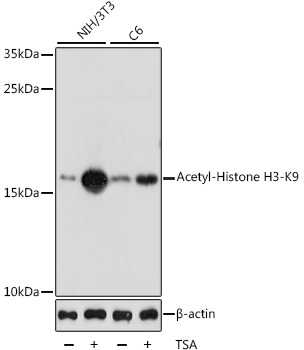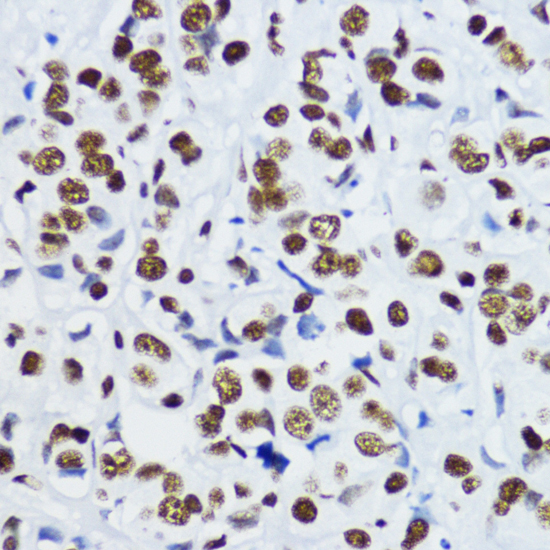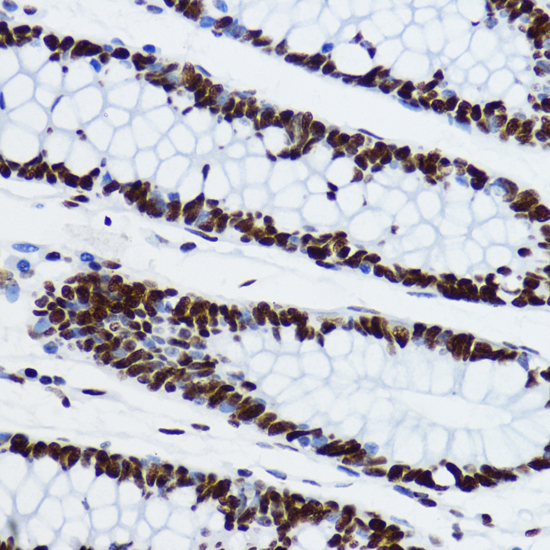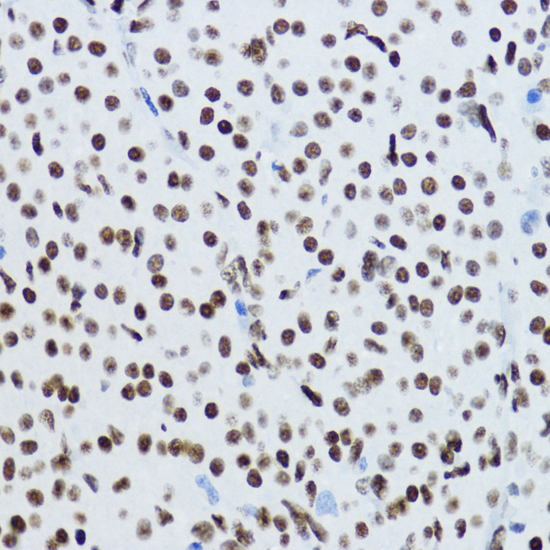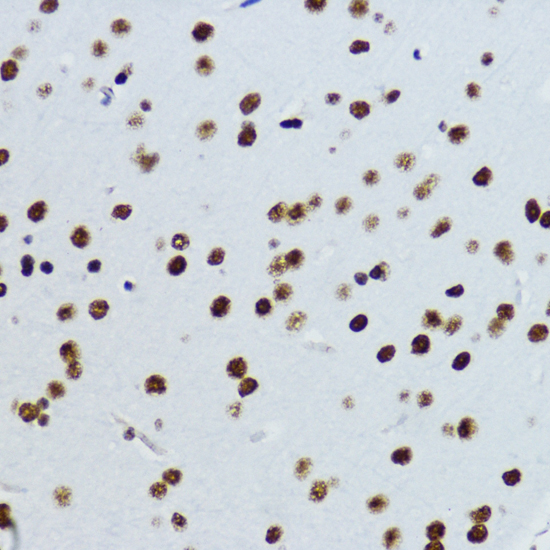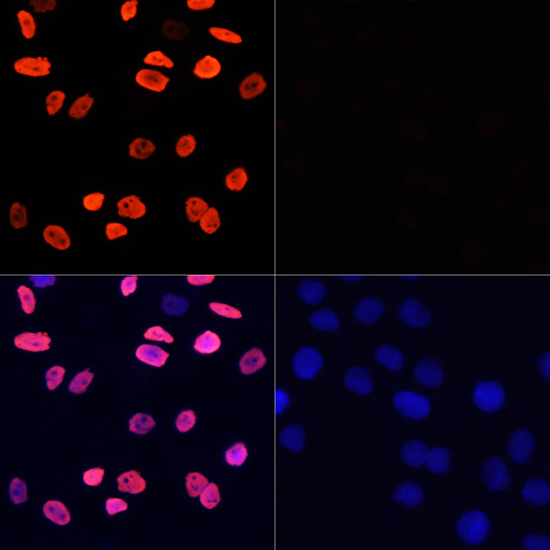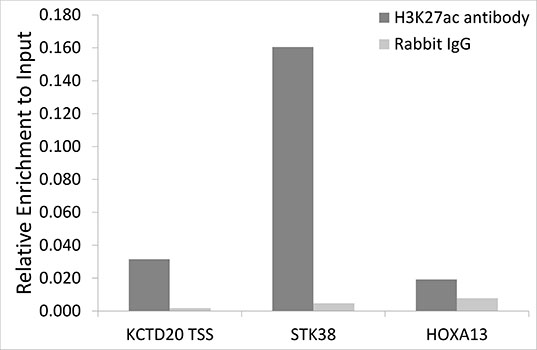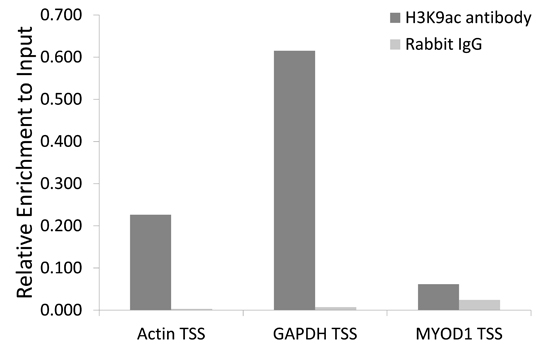Acetyl-Histone H3-K9 pAb
| Code | Size | Price |
|---|
| PSI-22-814-50uL | 50uL | £505.00 |
Quantity:
Prices exclude any Taxes / VAT
Overview
Host Type: Rabbit
Antibody Isotype: IgG
Antibody Clonality: Polyclonal
Regulatory Status: RUO
Shipping:
Blue Ice or RT
Storage:
Store at -20°C. Avoid freeze / thaw cycles.
Images
Documents
Further Information
Additional Names:
H3F3A, H3t, H3.4, H3/g, H3FT
Application Note:
WB: 1:500 - 1:2000
IHC: 1:50 - 1:200
IF: 1:50 - 1:200
IP: 1:50 - 1:200
ChIP: 1:20 - 1:100
CHIP seq: 1:20 - 1:50
IHC: 1:50 - 1:200
IF: 1:50 - 1:200
IP: 1:50 - 1:200
ChIP: 1:20 - 1:100
CHIP seq: 1:20 - 1:50
Background:
Histones are basic nuclear proteins that are responsible for the nucleosome structure of the chromosomal fiber in eukaryotes. Nucleosomes consist of approximately 146 bp of DNA wrapped around a histone octamer composed of pairs of each of the four core histones (H2A, H2B, H3, and H4). The chromatin fiber is further compacted through the interaction of a linker histone, H1, with the DNA between the nucleosomes to form higher order chromatin structures. This gene is intronless and encodes a replication-dependent histone that is a member of the histone H3 family. Transcripts from this gene lack polyA tails; instead, they contain a palindromic termination element. This gene is located separately from the other H3 genes that are in the histone gene cluster on chromosome 6p22-p21.3.
Buffer:
PBS with 0.02% sodium azide, 50% glycerol, pH7.3.
Concentration:
batch dependent
Conjugate:
Unconjugated
DISCLAIMER:
Optimal dilutions/concentrations should be determined by the end user. The information provided is a guideline for product use. This product is for research use only.
Immunogen:
A synthetic peptide of human Acetyl-Histone H3-K9
Modifications:
Acetylated
NCBI Gene ID #:
8290
NCBI Official Name:
histone cluster 3, H3
NCBI Official Symbol:
H3K9ac
NCBI Organism:
Homo sapiens
Physical State:
Liquid
PREDICTED MOLECULAR WEIGHT:
Observed: 16kDa
Purification:
Affinity purification
Research Area:
Signal Transduction
Swissprot #:
Q16695
User NOte:
Optimal dilutions for each application to be determined by the researcher.


